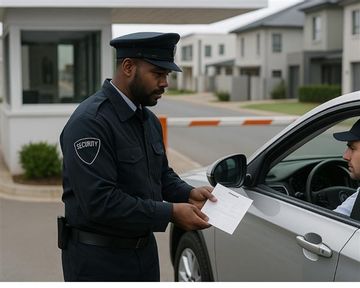Understanding FICA in South Africa’s Property Market: What Buyers and Sellers Need to Know
If you’ve ever tried to buy or sell a property in South Africa, you’ve likely encountered a flurry of paperwork, from certified IDs, proof of address, bank confirmations, and more. It might feel excessive at times, but all of it has a very important purpose. That’s where FICA comes in.
Let’s break it down so you can understand what FICA is, why it matters, and how it affects you in the property world.
What is FICA?
FICA stands for the Financial Intelligence Centre Act, and it’s been a key part of South Africa’s fight against financial crime since 2001. The main aim? To detect and prevent shady activities like money laundering, terrorist financing, fraud, and tax evasion.
Over the years, FICA has been updated, most notably in 2017 and 2022, to keep up with the growing complexity of financial crime. South Africa also follows the guidelines of the Financial Action Task Force (FATF), an international body that sets the global standard for anti-money laundering measures. That means our local laws aren’t just made in isolation, they’re designed to align with international best practices.
Why are estate agents held accountable under FICA?
You might be wondering, “Why does my estate agent need to see my tax number or bank details?”
Well, FICA outlines a list of industries, called Accountable Institutions, that are legally required to follow strict processes to verify client information. This list includes banks, lawyers, credit providers, and yes, property professionals.
That’s because real estate is, unfortunately, one of the preferred vehicles for criminals to launder large sums of money. Buying or selling a house can involve millions of rands changing hands, which makes it a prime target for illegal activity.
To prevent this, estate agents must verify who they’re dealing with, confirm where the money is coming from, and report anything suspicious. It’s not just best practice, it’s the law.
The paperwork: what you’ll be asked for
FICA compliance may seem burdensome to consumers. But by law, an agent may not accept a seller's mandate or conclude a sale agreement without this documentation.
So, what exactly do agents need from you?
-
A Certified copy of your ID or passport – to confirm your identity.
-
Proof of address (like a utility bill or lease agreement dated within the last 3 months) – to verify where you live.
-
SARS tax number – to ensure you’re registered with the tax authority.
-
Bank account confirmation – to avoid fraud and ensure funds are transferred correctly.
-
Proof of source of funds – especially for large cash deals, this helps prove the money is coming from a legitimate place.
If you’re self-employed or representing a business, you might be asked for a bit more, like company registration documents or financial statements. We've outlined a hassle-free home loan application process, that includes all the documents you would need as a self-employed buyer, here
Is my personal information safe?
Given the state of the world, this is a fair question, and the answer is yes. FICA works hand-in-hand with POPIA (Protection of Personal Information Act), so any sensitive data you share is handled with care.
Your information is only shared with relevant parties, such as conveyancing attorneys or banks, and only for the purpose of completing the transaction.
In other words: your documents aren’t going into a mystery filing cabinet. They’re protected and only used where absolutely necessary.
Because you are not only making a very huge financial commitment when buying a home, you are also sharing valuable information about yourself, it is vital that you ensure you are working with a legitimate agent. We delve into that with industry expert Susan Kruger from Compliance Realtor here
How to spot the red flags?
Recently, the Financial Intelligence Centre updated its guidelines around risk. The focus? Making sure estate agents are even more vigilant when it comes to spotting red flags.
There are now 13 key risk indicators agents must consider. Some examples include:
-
Clients who are reluctant to provide identification
-
Payments coming from third parties, especially in high-risk countries
-
Tenants who won’t allow property access for inspections
High-end properties are under particular scrutiny. For example, a buyer offering to pay cash for a R20 million property in Camps Bay, but with no clear explanation of where the money comes from, would raise major alarm bells.
Agents are now legally required to report anything that looks off. This includes:
-
Unusual financial behavior
-
Transactions that don’t match the buyer's or seller’s known financial profile
-
Involvement of third parties in deposits or ownership
Why it matters
At the end of the day, all this admin serves a much bigger purpose: it keeps the property market safe, transparent, and fair for everyone. Whether you’re a first-time buyer, a seasoned investor, or simply selling your family home, FICA ensures that everyone plays by the same rules.
So, the next time your agent asks for those FICA docs, just remember: it’s not about making life difficult. It’s about making the market safer—for you, and for South Africa.
Need help with FICA requirements for your property deal? Chat to a property professional who can guide you through the process and ensure everything is handled professionally and securely. To ensure you are ready for your property journey, we suggest that you get pre-qualified for a home loan - not only to see what type of home loan you might qualify for, but also to help you get all your paperwork ready.

